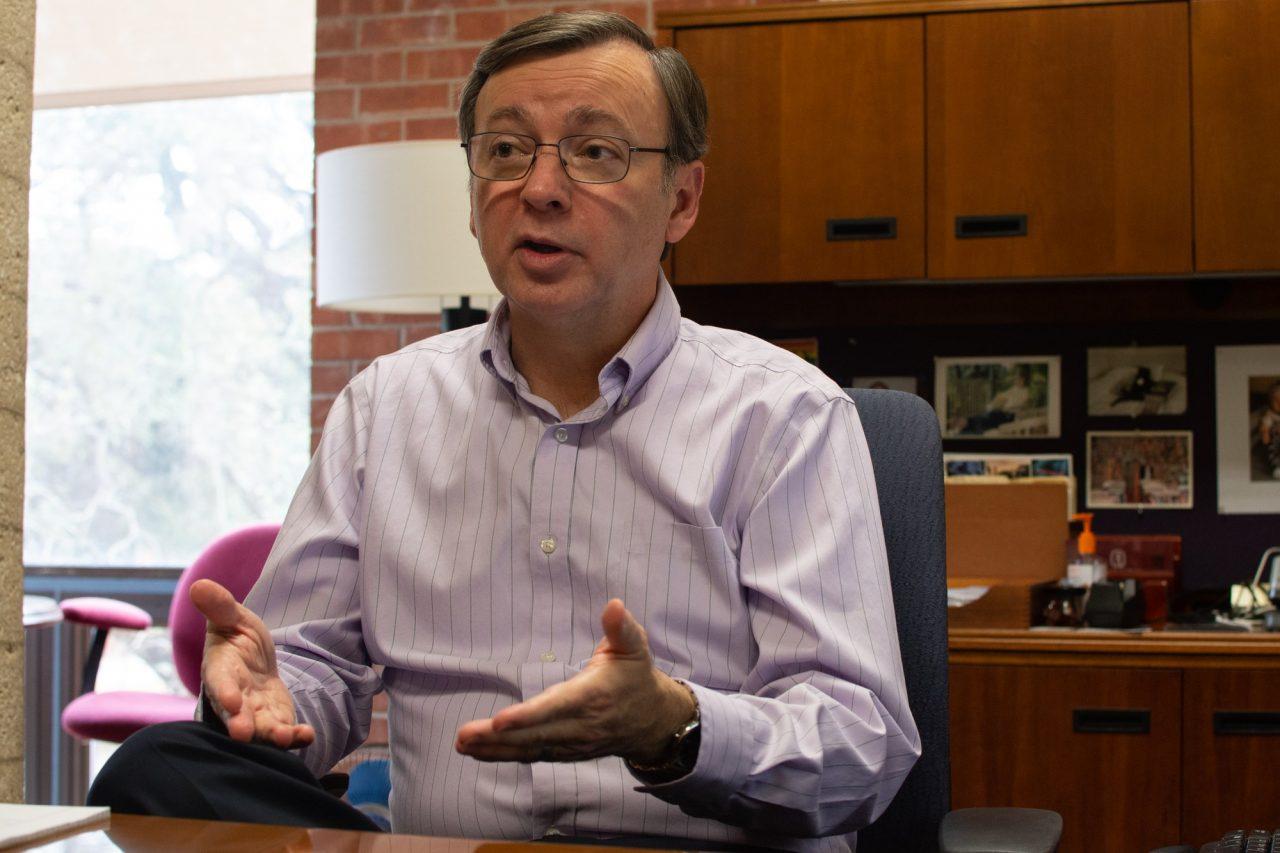The tenure process for librarians reflects the same process for other faculty members and creates opportunities for them to explore opportunities that faculty members have. At Trinity there are eight librarians who have received tenure, which includes the most recent recipient Alex Gallin-Parisi, instruction and liaison librarian, who received tenure on Feb. 15. She is currently on leave and unavailable for comment.
Librarians became official faculty members in 1968, as the result of a vote by other faculty. Around 2000, some administrators entertained the idea of changing librarians from faculty members to administrative staff, but after discussion the idea was abandoned and librarians are hired as faculty. Usually, being hired as faculty ties in with being hired on the tenure-track, meaning that the employee has the opportunity to gain tenure.
The University has its own overarching set of criteria for tenure, but each department is able to specify based on those main components.
“Every department, and this includes the library, has its own statement that articulates criteria for tenure. We have overall university criteria but the overall criteria gets articulated in different ways by each department,” said Duane Coltharp, associate vice president for Academic Affairs for curriculum and faculty development.
The university’s tenure criteria includes teaching, scholarship and service. The library interprets teaching differently than professors on the tenure-track but maintains the typical scholarship and service aspects.
“The academic department tends to have a section of their criteria focused on teaching, and ours is focused on librarianship. So we’re evaluating a tenure-track librarian’s teaching, their work and support of students and faculty outside of actual teaching classes, our work to purchase or select materials for the library, and then each librarian does other kinds of work. Depending on our position in the library, there are certain kinds of things that would fit into that area of librarianship that might be unique to our position,” said Benjamin Harris, head of instruction services and one of the eight tenured librarians currently working in Coates Library.
Tenure review happens in the sixth year of a faculty member’s time working at Trinity. After complying a portfolio proving their progress and attainment of the criteria, the faculty member’s portfolio moves through many different departments before tenure is granted or denied.
The tenure process is the same for all faculty, and begins with the tenured members of the department voting on whether to recommend the candidate for tenure or not. Chris Nolan, university librarian, is another one of the tenured librarians currently working in the library and he works with the other tenured librarians to create the department recommendation for tenure seeking librarians.
“[Tenure] provides expectations for the quality that you want in the people that you hire. When librarians are expected to do some scholarship it means they’re staying aware of trends in the field and contributing to developments in our field. It keeps people kind of lively,” Nolan said.
Next, the portfolio moves on to the Commission on Promotion and Tenure, which Harris is a member of. After receiving a recommendation or not from the commission, the portfolio is moved on to Deneese Jones, the vice president for Academic Affairs, and then finally to Danny Anderson, president, who makes the final decision on granting or denying tenure.
“It’s evaluative but it’s also making sure that the candidate has had a fair opportunity to present their case,” Harris said.
Beatrice Caraway, head of collection strategies and resource sharing, is another one of the eight tenured librarians and believes in the importance of hiring librarians as faculty members.
“At Trinity, we hold that this status allows librarians to be full partners in the mission of facilitating and enhancing student learning. They collaborate on equal footing with academic faculty to foster students’ research skills. As faculty members, they engage in scholarship in their own disciplinary areas as well as in the realms of pedagogy and information fluency. They are able — thanks to their status as faculty — to make significant contributions to the campus through membership on or leadership of faculty entities,” Caraway wrote over email.







